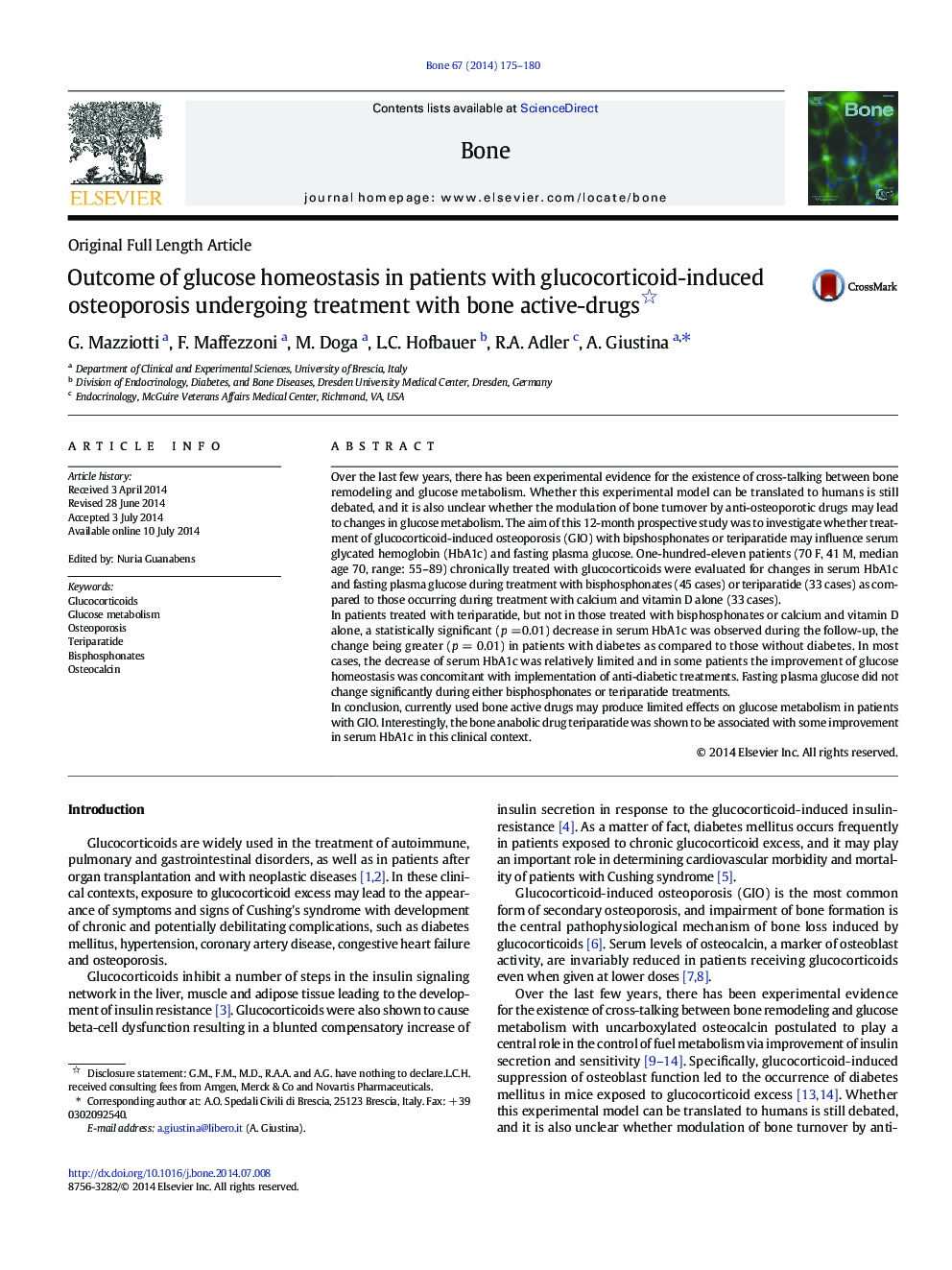| کد مقاله | کد نشریه | سال انتشار | مقاله انگلیسی | نسخه تمام متن |
|---|---|---|---|---|
| 5890326 | 1568152 | 2014 | 6 صفحه PDF | دانلود رایگان |
- Glucose metabolism is often deranged in patients exposed to chronic glucocorticoid excess and osteoblast dysfunction may be involved.
- Treatment with teriparatide was associated with improvement in glucose homeostasis in patients with diabetes and glucocorticoid-induced osteoporosis.
- The decrease in serum HbA1c during teriparatide treatment was not significantly associated with changes in bone turnover.
- Bisphopshonates did not induce any significant change in glucose homeostasis in patients with glucocorticoid-induced osteoporosis.
Over the last few years, there has been experimental evidence for the existence of cross-talking between bone remodeling and glucose metabolism. Whether this experimental model can be translated to humans is still debated, and it is also unclear whether the modulation of bone turnover by anti-osteoporotic drugs may lead to changes in glucose metabolism. The aim of this 12-month prospective study was to investigate whether treatment of glucocorticoid-induced osteoporosis (GIO) with bipshosphonates or teriparatide may influence serum glycated hemoglobin (HbA1c) and fasting plasma glucose. One-hundred-eleven patients (70 F, 41 M, median age 70, range: 55-89) chronically treated with glucocorticoids were evaluated for changes in serum HbA1c and fasting plasma glucose during treatment with bisphosphonates (45 cases) or teriparatide (33 cases) as compared to those occurring during treatment with calcium and vitamin D alone (33 cases).In patients treated with teriparatide, but not in those treated with bisphosphonates or calcium and vitamin D alone, a statistically significant (p =0.01) decrease in serum HbA1c was observed during the follow-up, the change being greater (p = 0.01) in patients with diabetes as compared to those without diabetes. In most cases, the decrease of serum HbA1c was relatively limited and in some patients the improvement of glucose homeostasis was concomitant with implementation of anti-diabetic treatments. Fasting plasma glucose did not change significantly during either bisphosphonates or teriparatide treatments.In conclusion, currently used bone active drugs may produce limited effects on glucose metabolism in patients with GIO. Interestingly, the bone anabolic drug teriparatide was shown to be associated with some improvement in serum HbA1c in this clinical context.
Journal: Bone - Volume 67, October 2014, Pages 175-180
